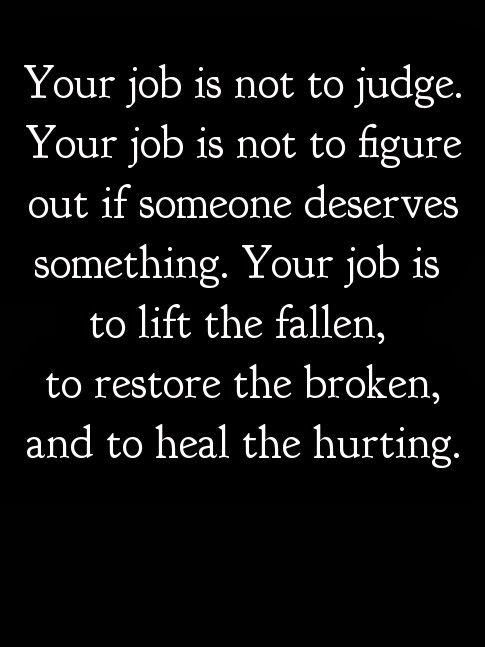CHAPTER FOURTEEN
Coping Skills
There is a story about a lion cub that was born among a herd of sheep. His lion mother was killed, so the herd of sheep took him in and brainwashed him into thinking he was a sheep. Did they tell him this maliciously to trick him? No, they were ignorant. They knew how to be sheep and that’s all they knew. Although they did not mean to hurt him he grew up thinking he must be a sheep. The skills he learned were garbage and did not help him cope with his difficult life. Being a lamb was not his true identity. As he grew he heard a tiny voice and had a feeling he was not a sheep. This tiny voice told him to “Eat the sheep.” He did not listen to this inkling in his head. Eating the sheep went against everything he had been taught. Then there was another tiny voice that said “Don’t eat the sheep; they are your brothers and family. They raised and taught you. They love you.”
The two conflicting voices and instinct were his real internal Self and his environmental external Self. Since his external Self (what he was taught) does not match his internal Self (what his instinct told him), the lion cub became very anxious. In fact, he became quite neurotic because he believed he was a sheep, but the voice to “Eat the sheep” kept driving him crazy. He was trying to believe the lie.
When the lion goes out into the world, away from the herd, what will happen? Will he be nervous? Of course he will be. It’s quite silly though! The lion has all the coping skills to deal with the world he will meet. Out in the world away from the herd is where he belongs, but he was brainwashed with lies. The lion is very worried because he knows lambs can’t survive living with a lion. If he covers himself up to look more like a lamb he thinks he will gain confidence and help him overcome his fear.
Perhaps he could roar loudly—like a lion with a bad temper—or talk too much. An even better cover-up would be to put on a real lion skin fool everyone into thinking he’s powerful—like a person who has a superiority complex. But who would he really be fooling. How ridiculous, a real lion wearing a lion skin! Why, because he believes the lie about his true identity and tries to fool everyone with cover-ups.
This is how we were taught—to be a lamb when we were and are a lion. The long road lies ahead and Dr. Ellsworth (my therapist) and I took months and months before I was committed to finding out who I truly was and re-teach the lion how to be a lion without eating any lambs. It was hard finding out for myself with--Dr. Ellsworth’s help—what lions eat, what do lions do and where do lions sleep. It was well worth the difficult path, but well worth it. I just now need to keep honoring myself as a proud, beautiful lion (human spirit) by treating myself well, nurturing my inner lion—the lion raised as a sheep—and nurture her the way she was not nurtured as a Supreme Being. No, I’m not getting cocky. We are all supreme beings at different levels of knowing that and treating yourself as this Supreme Being, the lion. Reading Dr. Ellsworth’s book has shown me that I am a lion too.
This story from Dr. Sterling Ellsworth’s book. How I Got This Way and What to Do About it, points out how we have all been taught bad information by our parents, friends, other family members, anyone who wants us to think we are less than what we are.
 odds are one of those habits are bringing mindfulness into your life more and allowing this to be the year where it sticks. Or maybe you’re also looking to change other habits that run alongside your values like being more self-compassion, living alongside your values, playing more or creating more mastery in life. All of these are basic elements that help uncover happiness.
odds are one of those habits are bringing mindfulness into your life more and allowing this to be the year where it sticks. Or maybe you’re also looking to change other habits that run alongside your values like being more self-compassion, living alongside your values, playing more or creating more mastery in life. All of these are basic elements that help uncover happiness.
.jpg) The result of that trial was a jury verdict of nearly $20 million against the Scouts, including $18.5 million in punitive damages—as well as an eventual Oregon Supreme Court ruling in 2012 requiring that the Perversion Files be publicly released as evidence of the history of abuse in Scouting. In September 2012, he argued to the Oregon Supreme Court that the Oregon laws giving special protection to public school teachers in cases of child abuse should be struck down as unconstitutional and is currently awaiting that decision. Recognized by his peers for his expertise in this area, he wrote and spoken widely on child abuse topics to professional audiences.
The result of that trial was a jury verdict of nearly $20 million against the Scouts, including $18.5 million in punitive damages—as well as an eventual Oregon Supreme Court ruling in 2012 requiring that the Perversion Files be publicly released as evidence of the history of abuse in Scouting. In September 2012, he argued to the Oregon Supreme Court that the Oregon laws giving special protection to public school teachers in cases of child abuse should be struck down as unconstitutional and is currently awaiting that decision. Recognized by his peers for his expertise in this area, he wrote and spoken widely on child abuse topics to professional audiences.

